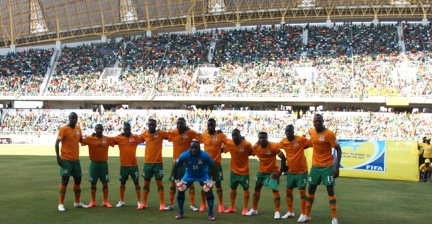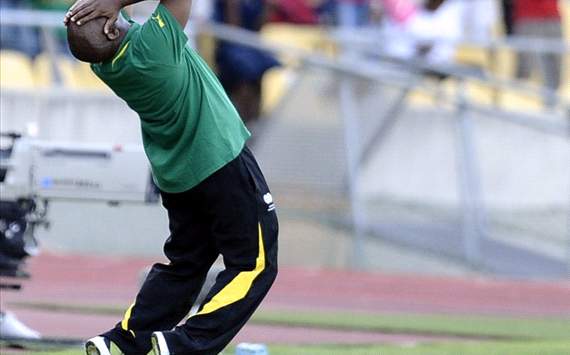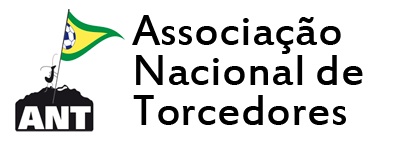The Garrincha of futbology, David Goldblatt, admits he’s neither Brazilian nor a Brazilianist as he begins his recent public lecture at Pitzer College in California.
Then, like Garrincha, he feigns left, goes right through through Brazil’s World Cup history, pivots on slavery, Lusotropicalism and GINI coefficients, does a give-and-go with Mario Filho, dribbles around Benedict Anderson, reaches the Maracanazo touchline, and delivers a cross into the Vinegar Revolt of 2013.
Eduardo Galeano has written that “in the history of soccer no one made more people happy” than Garrincha. It’s not too much of a stretch to say that in the field of futbology the same is true for David Goldblatt.
Tag: 2014 World Cup
Police in riot gear battle protestors in the streets of Rio de Janeiro. Aggressive slum clearance threatens favelas. Gentrification at Maracanã Stadium. FIFA exclusion zones around World Cup venues. Sound familiar?
As readers of this blog know, South Africa staged a successful World Cup in 2010, marketing the country globally to tourists and foreign investors, and uniting, albeit temporarily, a nation divided along racial and economic fault lines. South Africa’s experience was part of a larger trend, that of BRICS countries enthusiastically embracing the global mega sporting events business: from Beijing (2008 Summer Olympics) and Delhi (2010 Commonwealth Games) to Brazil (2014 World Cup and 2016 Olympics) and Russia (2014 Winter Games [Sochi] and 2018 World Cup).
Recent media coverage of Brazil’s preparations reveals growing FIFA unease with delays in infrastructure construction projects and other hosting problems. Speaking at a FIFA academic symposium last week, FIFA General Secretary Jerome Valcke expressed frustration with Brazil’s government, saying that “less democracy is sometimes better for organizing a World Cup,” according to a Reuters wire story. Valcke’s extraordinary remark confirmed some experts’ suspicions about FIFA’s underlying rationale for choosing autocratic Russia and Qatar (2022) as World Cup hosts.
Another story about 2014 World Cup stadiums was published in the New York Times Goal blog. James Young’s “White Elephant Hunting in Brazil” highlighted the importance of staging matches across the country. It concluded that while there were some troubling questions about the preparations, “Nevertheless, amid talk of delays and spiraling costs, the 2014 World Cup will at least be an event for all Brazil. In a country where the north-south cultural and economic divide is so deeply engrained, that at least is something to celebrate.”
Young’s article elicited a sharp response from Chris Gaffney (@geostadia), Visiting Professor at the Graduate School of Architecture and Urbanism at Rio’s Federal University, on his blog “Hunting White Elephants.”
“The projects associated with the World Cup were poorly planned, hastily executed (if at all) and may not serve the long-term needs of the cities or the country,” Gaffney writes. “There is no redress (as the [NYT] author suggests) of historically-situated cultural or economic divides in World Cup investment, especially when we take into consideration the astronomical sums being invested in Rio de Janeiro for the 2016 Olympics.” Gaffney concludes emphatically by pointing out that Young’s piece “does not attempt to kill White Elephants, but to make them into bichos de estimação (pets).”
On Saturday, April 27, ABC radio in Australia picked up on Gaffney’s critical blogging. Listen to Geraldine Doogue’s interview with him here.

Guest Post by *Hikabwa Chipande
NDOLA — Zambia’s victory in the 2012 African Nations Cup has spawned a new fashion on the Copperbelt — the country’s industrial and football heartland — where people now wear Chipolopolo (Copper-bullets) replica jerseys as well as chitenge (women’s waist wraps) in the national colors. Selling Chipolopolo regalia has also become big business in street markets and makeshift stores. Clearly, the African champions have re-energized the mood of the nation and revitalized support for football among ordinary citizens, politicians, and business people.
The stability of copper prices, increases in copper production, an improving economy, and the pride of being African football champions, have led ZCCM Investments Holdings, formerly Zambian Consolidated Copper Mines, to reconsider supporting the sport. For instance, private companies such as Mopani Copper Mines and Copperbelt Energy have resumed their funding of Kitwe’s famous Nkana Red Devils and Power Dynamos.
“Winning the African Cup changed things,” says Red Devils head coach Linos Makwaza. “People have started coming back to football. At Nkana [Football Club] Mopani [Copper Mines] is now involved and has taken over which is good,” Makwaza says. The relationship between mining companies and football is not a new one. It has shaped the history of the game in Zambia. As far back as the 1920s, when copper mining started on the Copperbelt under British colonial rule, and into the independence era up to the privatization of the ZCCM mining company in 1991, government-controlled mining companies provided football grounds, financial resources, coaches, players, and stimulated a deeply rooted fan culture.
Zambia’s Nations Cup success has inspired politicians such as Sports Minister Chishimba Kambwili to encourage new owners of copper mining companies to sponsor Mighty Mufulira Wanderers, Nchanga Rangers, Nkonkola Blades, Roan United, Kalulushi Modern Stars and other important, but struggling, clubs in the mining province. Abraham Nkole, currently Mighty Mufulira Wanderers manager and a former player in the 1960s and 1970s, sees this shift as an opportunity to resuscitate the “lost glories” of Copperbelt football.
The opening of a modern stadium in the mining town of Ndola has also injected new life in Copperbelt football. I was in attendance on June 9, 2012, for the inauguration of the Chinese-built 40,000 capacity Levy Mwanawasa Stadium, which hosted a Zambia vs. Ghana 2014 World Cup group D qualifying match (see photo). Thousands of fans clad in green and orange Chipolopolo replica jerseys besieged Ndola. With Vice President Dr. Guy Scott in the stands, Chipolopolo beat the Black Stars 1-0 in the packed stadium, thus renewing their hopes for qualifying to Brazil 2014 after being thumped by Sudan 2-0 in Khartoum a week earlier.
Practitioners and fans I spoke to on the Copperbelt are encouraged by recent developments and hope the mining province will soon reclaim its dominant position in Zambian football after two decades of decline. The political and financial investment that is fueling the game’s resuscitation owes much to Chipolopolo’s international success. The question is whether such support will continue should the national team perform badly at next year’s African Nations Cup in South Africa.
*Hikabwa Chipande is a PhD candidate in African history at Michigan State University. His dissertation research is on the social and cultural history of football in 20th-century Zambia. He can be contacted at chipande [at] msu [dot] edu.

Guest post by Mohlomi Maubane
The Germans regularly find a way to excel in tournaments and are among the favourites to win the Euros in Poland/Ukraine. The South African football fraternity would do well to take a page out of the playbook that produced the current incarnation of Die Manschschaft when appointing a new Bafana Bafana coach. SAFA fired Pitso Mosimane this week after Bafana Bafana could only muster a 1-1 draw against Ethiopia in a 2014 World Cup qualifier in Rustenburg.
Eight years ago, the German national team was in dire straits after failing to win a single match in the group stages of the 2004 Euros. A rebirth seemed inevitable, and the newly appointed technical team of Jürgen Klinsmann and Joachim Löw pursued it with typical German precision.
Their first step was to give Die Manschschaft a new identity. The duo settled on a style based on playing the ball on the ground and transitioning swiftly from defence to attack. This was the outcome of an extensive consultation process. Workshops were held with German coaches and players to inquire how they wanted to play and how they wanted to be seen to be playing by their fans (and international ones too). Members of the German public also enjoyed the opportunity to provide input on how they wanted the national side to play.
From this inclusive process, Klinsmann and Löw drafted a curriculum for German football that was presented to the Bundesliga and the German FA. The latter then pressured teams in the former to build academy programmes that adhered to the overall strategy. Bundesliga teams were also encouraged to adopt a fitness programme that enabled the philosophy to be implemented. The newly appointed Under-21 coach also had to abide by the new policy.
2014 World Cup Draw: Fans Protest in Rio

The 2014 World Cup officially got underway today with the qualifying draw in Rio de Janeiro. Simultaneously, the Associação Nacional dos Torcedores de futebol (ANT, the National Association of Football Supporters) organized a demonstration against the World Cup (and the 2016 Olympics). ANT’s call to protest read thusly:
Do you think that the World Cup belongs to us?
Our government continually says that the World Cup and Olympics will bring benefits to Rio de Janeiro and Brazil. But who will benefit? The cost of living and rent are continually on the rise, families are forcibly removed from their homes and street vendors are prevented from working.
More: they are wasting public money on all of these projects and have put forward a law that will hide how much they have spent. To make things worse, the organizers of the World Cup, FIFA and Ricardo Teixeira (the president of the Brazilian Football Federation), are being accused of corruption by multiple sources.
Everything indicates that the World Cup and Olympics are going to repeat, on a larger scale, the history of the 2007 Pan American Games: misappropriation of public funds, unnecessarily large construction projects that become useless after the competition, benefits only for large businesses whose owners are friends of those in power and the violation of the human rights of millions of Brazilians.
The forced removal of families affected by these projects is happening in an arbitrary and violent manner. This situation has already been denounced by the United Nations. Mega-events are being used to install a State of Exception, with the systematic violation of the rule of law.
In this vein, what will be the legacy of the mega-events? The privatization of the city, of health and education? The gentrification of football culture and its stadiums? That private companies will reap profit and benefits with exemptions from taxation and subsidized loans? The profits from the World Cup will be for entrepreneurs, and the debt will be ours. Are we going to allow the mega-event histories of Athens 2004 and South Africa 2010 to repeat themselves?
Join us! Together we will change this trajectory, come and fight! Come kick a ball around with us at the Largo do Machado, the 30th of July beginning at 10am.
Zero evictions!
The city is not merchandise to be bought and sold!
No to the privatization of land and public resources, airports, education and health care!